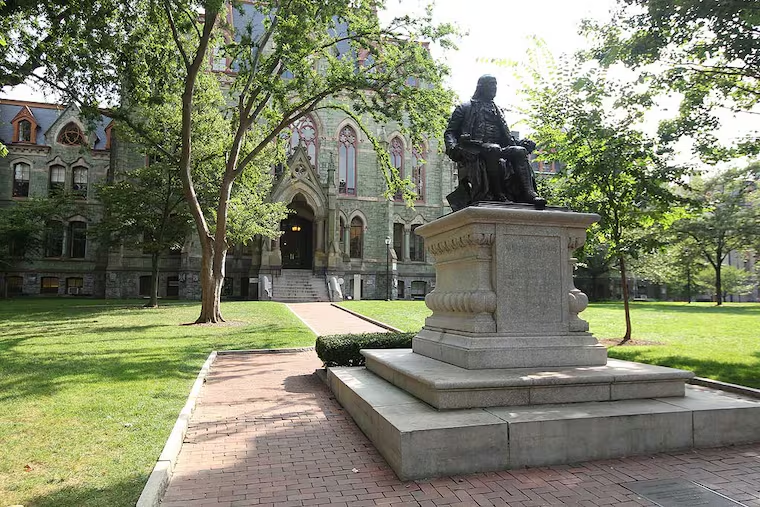Penn will commission a study of its police force and withdraw support from Philly’s police foundation
The University of Pennsylvania has commissioned a review of its police department and will withdraw funding to the city police foundation, following protests locally and nationally against police brutality.

The University of Pennsylvania announced Wednesday that it had commissioned a review of its police department and would withdraw funding to the city police foundation, following protests locally and nationally against police brutality.
While praising its police department, one of the largest campus police departments in the country, Penn leaders said they recognize the need for review.
“We are committed to ensuring that our DPS professionals grow, evolve, and change to meet the needs of the community they serve,” wrote university president Amy Gutmann and other Penn leaders.
Penn called the review independent. But it will be conducted by a center within its law school, the Quattrone Center for the Fair Administration of Justice, which conducts reviews of police procedures and puts out research “designed to prevent errors in the criminal justice system.”
The university also said it, along with Penn Medicine, would no longer purchase tickets to attend annual fund-raising events held by the Philadelphia Police Foundation.
» READ MORE: Petition against ‘militarized’ policing at University of Pennsylvania reaches 10,000 signatures
A petition launched earlier this month that calls on Penn to end what organizers said is a campus “police state” has drawn more than 13,000 signatures. Organizers have called on Penn to ban the use of guns on campus, stop the “racialized practice” of broadcasting texts and emails only when members of the wider community commit crimes (and not when students do), and to end relationships with organizations that support policing. The petition also says the university should form an investigative team including students and faculty of color to examine instances of people of color who were stopped and frisked, and to have that team review policies and training practices for university police.
Protesters also have voiced their concerns outside Gutmann’s house.
“We strongly disagree with the assertion that there is a ‘police state’ at Penn,” a Penn spokesperson told The Inquirer earlier this month. “We have one of the finest university police departments in the country. Racial profiling is something the university does not tolerate.”
Concerns have also been raised at other universities about police and financial support of police associations in the wake of the Minneapolis police killing of George Floyd. At Temple, protesters have called for the university to cut ties with city police and cease sponsorship of the city police foundation. At Pennsylvania State University, faculty in the African American studies department have called on the school to cut ties with local police and disarm the university police.
Penn’s announcement brought criticism from some, including a group called Police Free Penn, which grew out of the petition. The group called the response “demeaning and wholly inadequate.”
Taya Lowery-Williams, 19, a rising junior at Penn who is on the board of directors of Umoja, the umbrella group for Black student organizations, questioned how independent the review would be.
“It’s an oxymoron that it’s an independent investigation by Penn’s own law school,” she said.
Christopher R. Rogers, a Black graduate student at Penn, said students have noted over time being harassed by Penn police.
“Many people are told to always wear Penn gear on campus so they are seen as campus folks rather than being Black Philly folks,” Rogers said.
» READ MORE: Temple to seek meeting with Philadelphia police to discuss student concerns
Maureen S. Rush, a former Philadelphia police officer who has led the Penn police for more than 25 years, called the review a positive step in a message to her officers and security partners. Rush, Penn’s vice president for public safety, also wrote that she was “open to looking at new and innovative ways we can continue to earn the trust, confidence and respect of our community.”